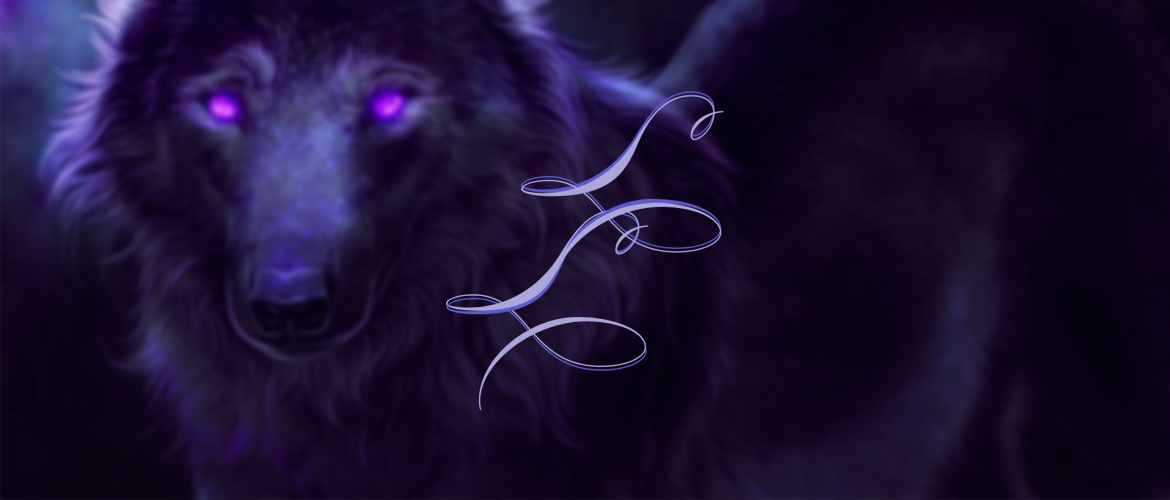Lytheri & Leylinean Tongues
An ancient tongue twisted by time.
Dialects
Once spoken in ancient Etheria, its use has largely been lost to the demise of its civilization as they sought to forget their ties to their past. Royal bloodlines have passed down remnants of the language to their descendants, which educated wolves have coveted to learn for themselves in the study of etherial magic and archaeology. However, there is a seedy underbelly in the niche nature of having few native speakers. The language has been used throughout the Fragmentary and Linean Eras in espionage, cults, and between those who do not wish to be easily overheard.
Sentence structure was quite different in ancient times, making translation of relics and surviving texts more difficult, and it's rare to find those who are so well-studied that can speak or write fluently in the old tongue. However, those who still can use it today typically mimic their native language patterns for simplicity. OOCly, this is the equivalent of writing and speaking using English sentence structure.
Ancient Lytheri
The bygone tongues of old.
(Unkown ETH ~ 75 FRG)
- Originated during the Etherian Era.
- After the Baja Blast that ended their era, the Etherians scattered to the winds, and the language began to erode. It is spoken exponentially less as the Fragmentary Era progresses.
- Ancient Lytheri is extremely difficult to translate for those who have not deeply studied the original tongue. While the writing system is well-documented, its application is not. The collapse of their civilization necessitated the saving of only that which held utmost importance – of which grammar books were not.
- Sentence structure and syntax appears to meander and double back upon itself. Some scholars theorize that Lytheri's root language is that of the etherials, adopted by the wolves as they learned to harmonize with one another. Others believe Lytheri's wandering manner reflects their reverence for the leylines, their language to mimic the flow of the magic they felt so intrinsically within.
Colloquial Lytheri
The simplified elder tongue.
(30 ~ 250 FRG)
- Spoken primarily during the first half of the Fragmentary Era.
- As the Etherians became divided and spread out, they encountered those who were unfamiliar with Lytheri's lyrical phrasing. No longer one, harmonious pack, they began to war with one another, as well as other native packs, in power struggles that lasted for centuries.
- As wolves clashed across the continent, the need for shorter, more direct communication arose and the once melodic voice of old gave way to the simplified dialect of Lytheri. Syntax is roughly equivalent to modern Leylinean.
- Increasingly rare into the Linean Era, though notably the Fae Pack still practice speaking colloquial Lytheri, as they believe they are direct descendants of the once mighty Etherian civilization. However, they do not offer an education to outsiders freely, determined to keep their language safe from being lost once more. Difficult to impress, only the most dedicated scholars, historians, and archeologists, as well as those of noble birth (and nobler assets) have been granted access to learning the language.
Leylinean
Wolven common language.(~250 FRG to Present)
- Spoken during the latter half of the Fragmentary Era after significant erosion of the ancient tongue. Hastened by the Fae Pack hoarding and gatekeeping Lytheri documentation to themselves.
- Despite their anxiousness to preserve Lytheri, their unwillingness to allow others free access to the language only hastened the adoption of Leylinean as less wolves are able to read, write, and converse in the ancient and colloquial tongues.
- Over 500 years have passed since ancient times. Foreign, native, and Etherian wolves have long since mingled, converging their languages into Leylinean, the common tongue that all wolves share in the modern era.
Lytherin Script
Despite centuries of war, scholars of the past ensured the safekeeping of the Etherian's script, Lytherin. While the ability to decipher ancient Lytheri writings have diminished considerably during the Fragmentary Era, the script's alphabet and numerals are reasonably well-documented and still remain in use, relatively unchanged from long ago.
Lytheri's Song
The sounds and structures that make up the language are known as the Song. While much of the original understanding has been lost to time and catastrophe, wolves still try to sing in the elders' voice. It is well understood that the Lytheri language was established by wolves who were deeply connected to the etherials and their magic. Much of their language reflects this connection, with words that layer upon themselves within meandering sentence structures. Some known rules are below.- Root words are commonly used. Many words are built off of one another, layering the language in itself. Some have compared it to how ether attracts itself to like ether.
- Singular words often double as statements or idioms. When writing and speaking, ancients proved to be long-winded in their syntax as many words have double meanings and needed to be clarified. However, as many words appear to do the opposite and mean entire idioms or statements.
- Articles:
- Plurals: Adding i to the end of a word creates its plural. (E.g. Descen = Light, Desceni = Lights)
- Possessive: Adding 'r to the end of a word creates its possessive. (E.g. Feren = Wolf, Feren'r = Wolf's)
- X: Adding ithv before a plural i creates _. Adding ithv after a possessive 'r creates a past tense plural, usually meaning "once belonging to". (E.g. Ey Scen Unaferen'rithv = A light once belonging to her.
- Verbs: Adding De before a given word transforms it into its verb. (E.g. Scen = Light. Descen = Illuminate)
Discovered Vernacular
Ancient writings that have been found in character and successfully translated will be inscribed below. Examples will be given in the context of English sentences for easier understanding and utilization in game.Phrases
"Feren desceni'r erios, nal nasc." (Idiom) - Meaning "Be one of the light's existence, lacking in shadow." Found inscribed within texts
"Grauln!" (Statement) - Leave me be! You're bothering me.
"Quothe?" (Statement) - What do you mean by that? / What?
Vocabulary
Ayen
Avalenis
Avaryse
Bora
Cor
De - Prefix used to transform a word into its verb.
Descen - Of the light; emanating light; illuminate
Ey
Erios - To be; existence
Feren - An individual; wolf
Grauln - Annoyance, irritation, bothersome; "Leave me be."
Ir - Royal
Ireni -
Iri - Royalty
Jorne
Lyren
Maryn
Nal - Lacking; none; minimal
Nalsc - Shadow
Orien
Quothe - To have a question; what; what do you mean
Leyla's head tilts, confused. "Quothe?"
Qurowl - Contemplation, musing; confusion, perplexed
Rrogthe
Scen - Light
Traug
Una - Feminine pronouns (she, her)
Unaferen - Female individual (typically refers to wolves, though can be used when referring to other species)
Vunal - Nonbinary pronouns (they, them)
Vunalferen - Nonbinary individual (typically refers to wolves, though can be used when referring to other species)
Vuln - Masculine pronouns (he, him)
Vulnferen - Male individual (typically refers to wolves, though can be used when referring to other species)
Woulf - Acknowledgement; greeting
Woun
Wraugh
Language Status
Historical Eras Ancient Lytheri: Extinct
While there are those who are attempting translations of ancient texts and relics, this root language has not been actively used in centuries. Colloquial Lytheri: Endangered, Risk of Dormancy
This language has faded from use with the vast majority of the general population during the last few hundred years. However, determined individuals and the Fae Pack have kept the language alive, albeit tenuously. Usage continues to decline. Leylinean: Widespread
The common tongue that all wolves communicate with throughout the continent.






Comments